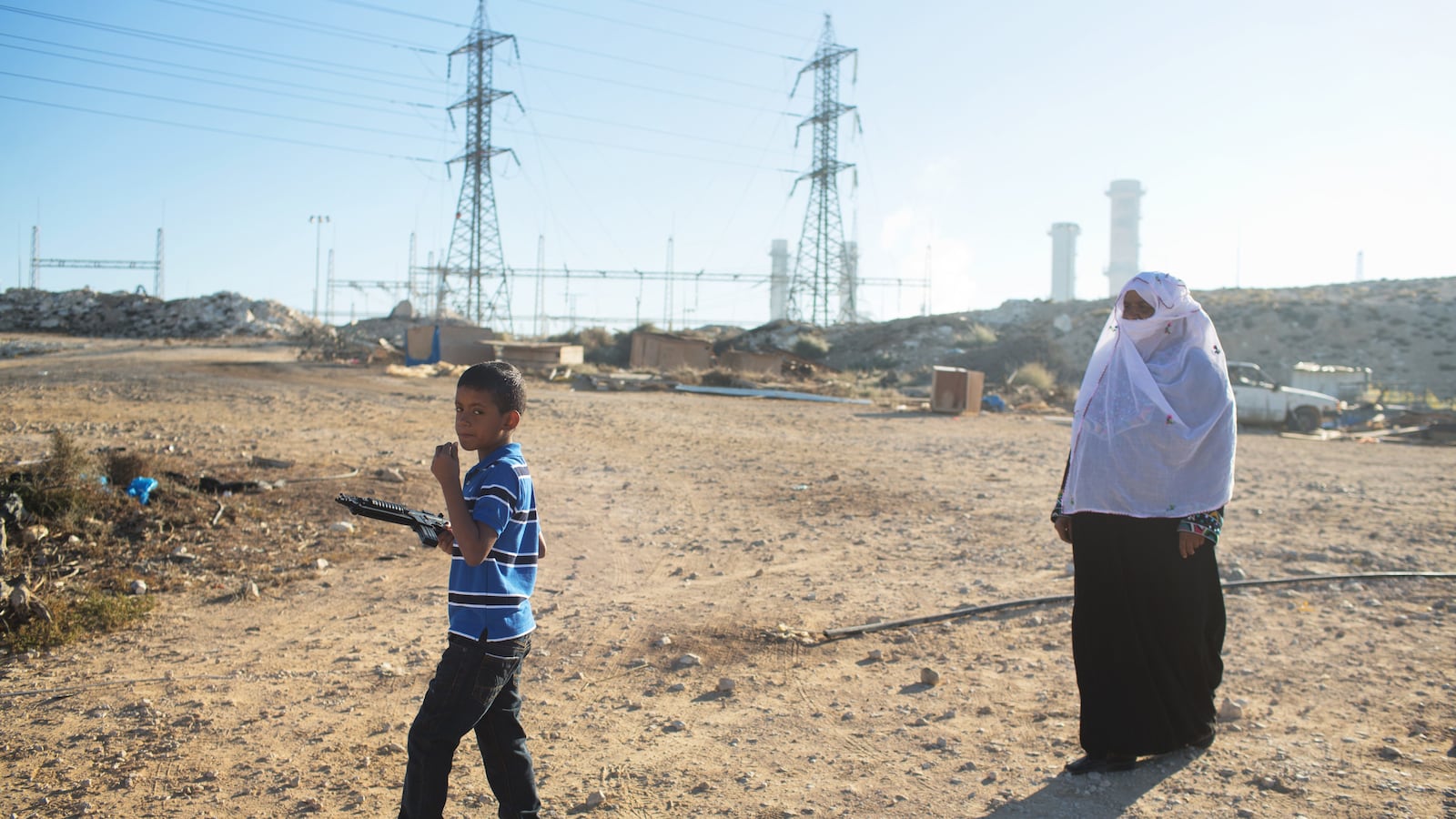A few days ago I received an attractive glossy mailer from the Jewish National Fund (JNF), celebrating the ripple effects of “Blueprint Negev.” This signature JNF campaign is working to rejuvenate and develop Israel’s southern region by investing in infrastructure, environmentally sustainable projects, and the creation of new Jewish communities, encouraging hundreds of thousands of people to move to the Negev.
But there is another, more ominous side to these efforts. The premise behind Blueprint Negev is similar to the Israeli government’s view: the development of the Negev requires the resettlement of a substantial portion of the Bedouin community, despite its historic ties to the Negev, which predate the State of Israel.

The Knesset’s Interior Committee began hearings today on the “Bill on the Arrangement of Bedouin Settlement in the Negev,” also known as the Prawer-Begin Plan. The plan claims it will “make it possible for their children to leap in time into the midst of the 21st century, and to build a better future for them while maintaining their culture and way of life.”
Sounds good on the face of it, doesn’t it? Who wouldn’t want to both modernize and preserve traditions, to bring the Bedouin community out of poverty and into the mainstream and a better life? However, the Prawer-Begin Plan was developed without meaningful input from the Bedouin. It will lead to the forcible eviction of approximately 30,000 Bedouin from their villages, and their resettlement in already impoverished urban areas. Over the last year, thousands of Bedouin Israelis have taken to the street to voice their objections to the government’s plan.
Most American Jews have only the vaguest familiarity with the Bedouin of the Negev, who gave up their nomadic ways over a century ago. After the 1948 War of Independence, the Bedouin who remained in the Negev were forced by the Israeli Government into an arid area known as the Siyag (Hebrew for “Fence”).
But even though the Negev Bedouin were restricted by martial law to living within the Siyag, their homes and communities there were omitted from official Israeli maps and plans, so all Bedouin structures became “illegal” even within this area. Since then, the government has refused to recognize dozens of Bedouin villages and has denied them government services—roads, water, sanitation, electricity, health care—for decades.
For some of us, the Siyag evokes the Pale of Settlement in Russia—a place where Jews were forced to live, and then later expelled from by force. For many American Jews, the disturbing parallel is the treatment of Native Americans in the United States in the 19th century.
Can a Jewish state in the 21st century perpetrate the forcible eviction of an indigenous people, ignoring Jewish history and the many expulsions we Jews were subject to? How can Israel ignore the Torah’s repeated injunctions to be kind to the stranger who sojourns in our midst, when we know what it is like to be a stranger in society?
Thankfully, this draconian proposal is not a done deal and not universally supported. The Knesset approved the first reading of the legislation in June, but with only a three-vote margin. Human rights organizations, led by Rabbis for Human Rights and T’ruah: The Rabbinic Call for Human Rights, believe it is still possible to make our voices heard and set history right. That is why I am one of more than 775 rabbinic leaders who have joined together to urge Prime Minister Netanyahu to withdraw this legislation before it becomes law.
This week we are deep into the Torah readings of Genesis. Our patriarchs were unable to live together with their brothers on the land, but repeatedly the Torah shows them negotiating over water and land with neighboring groups. Ironically, just this past week, we read of the founding of Beersheva as a result of the treaty Isaac swore with Abimelech to live in peace together.
Let us not rationalize or attempt to justify an expulsion that in our hearts we know is wrong. Let us make our voices heard—for the sake of peace, for the sake of the land, for the sake of our people and theirs.






